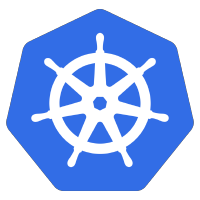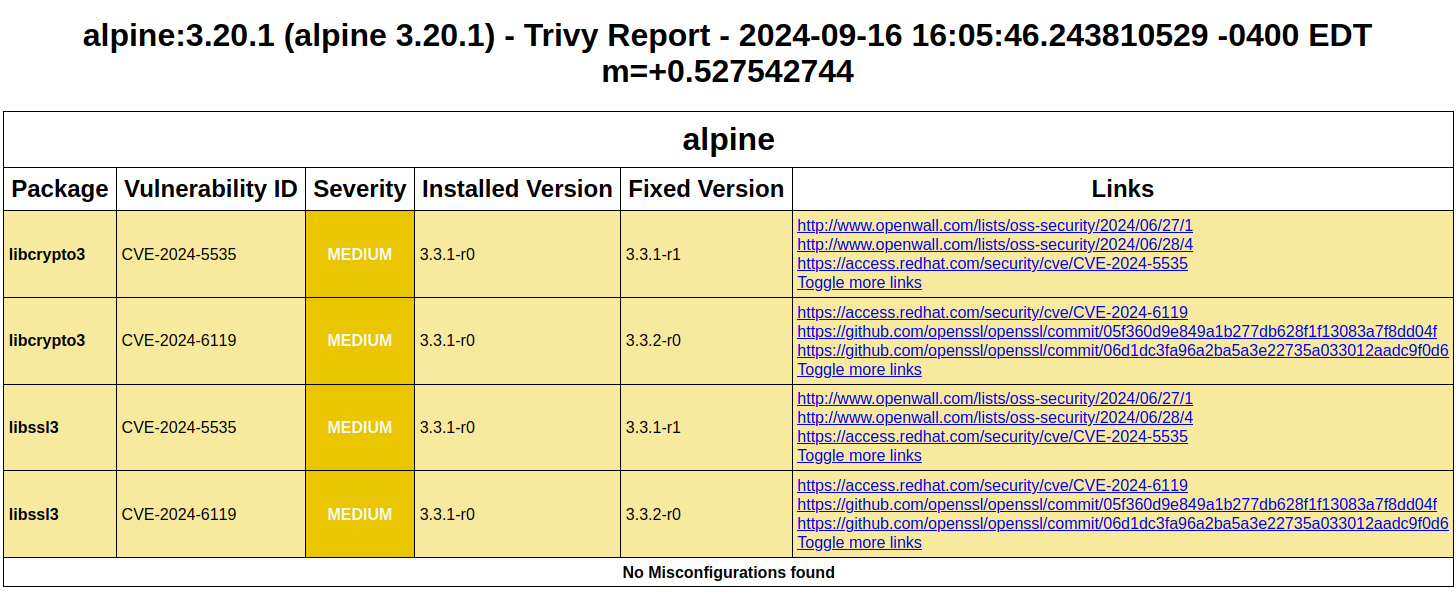 Trivy is an open-source tool that can scan your containers and produce reports on known critical issues at the binary and OS package level.
Trivy is an open-source tool that can scan your containers and produce reports on known critical issues at the binary and OS package level.
In this article, I will describe how to scan images directly from your local Debian/Ubuntu machine, whether you built the image locally or pulled it down remotely.
Installation on Debian/Ubuntu
Per the official installation documentation, install Trivy as follows:
sudo apt-get install wget apt-transport-https gnupg wget -qO - https://aquasecurity.github.io/trivy-repo/deb/public.key | gpg --dearmor | sudo tee /usr/share/keyrings/trivy.gpg > /dev/null echo "deb [signed-by=/usr/share/keyrings/trivy.gpg] https://aquasecurity.github.io/trivy-repo/deb generic main" | sudo tee -a /etc/apt/sources.list.d/trivy.list sudo apt-get update sudo apt-get install -y trivy
Validate
# ensure trivy is installed and on PATH trivy version # check standard location for HTML template ls -l /usr/local/share/trivy/templates/html.tpl
Scanning locally built images
If you have already installed Docker and have locally built images, then you can run a scan as follows.
# list locally available image names and version docker images # scan a local image, outputs results in table form trivy image <NAME>:<VERSION> # if instead you wanted json report trivy image <NAME>:<VERSION> -f json -o report.json
Trivy will output a list of vulnerabilities and their severity.
Scanning remote images
You can scan remote images (e.g. DockerHub) by either specifying the remote registry, or manually pulling it down first and then running the scan. For example, here is how you would scan the Alpine 3.20.1 image on DockerHub.
# trivy will pull down and scan trivy image docker.io/alpine:3.20.1 # OR pull down manually and scan docker pull alpine:3.20.1 trivy image alpine:3.20.1
Generating HTML report
If you want to generate a human-readable report, you can use the HTML template that comes as part of the installation.
trivy image --format template --template "@/usr/local/share/trivy/templates/html.tpl" <NAME>:<VERSION> -o report.html
Which produces a report that will look similar to below.

REFERENCES
Installing Docker on Debian/Ubuntu
stackovervlow, generate HTML report from Trivy
trivy docs, outputting json report
Aqua Security enhancements for licensed product